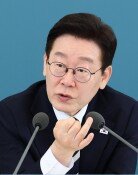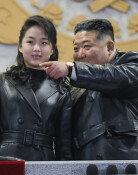[Opinion] Checks and Balances in Elementary Schools
[Opinion] Checks and Balances in Elementary Schools
Posted March. 09, 2005 22:36,
With the beginning of spring and a new school year, elementary schools nationwide are busy with student council elections. Each class picks a class president, and parents strongly encourage their childrens successful political careers while the student council is being organized. In the past, class teachers simply appointed the brightest students or those who had influential parents, but this is no longer so. This semester, the Gyeonggi Provincial Office of Education has recommended that all students get a chance to be in the student council for at least one day or week.
Although they are school elections, we should not disregard them. Campaigning still takes place, just as in any political arena, and the students image strategies resemble those of a Presidential election. As if to reflect current national political trends, female candidates in school elections are more plentiful, even at the elementary school level, and election results are often determined by girls voting trends. Delivering joint campaign speeches through the school television broadcast is a common occurrence, and some schools have even introduced electronic voting systems. The Election Commission has initiated a school election helper system, providing ballot boxes and voting booths upon schools requests.
Hwarang Elementary School in Gongneung2-dong, Nowon-gu, Seoul, has been running a unique student council named Hwarang Childrens Nation for 17 years. Each class has one Congressman and Judge, and all students in grades three or above have a chance to elect a President through direct voting. Class Congressmen and Judges hold separate meetings and elect a Chairman and Chief Justice to check the power of the President. A few days ago, a parent whose son was elected Judge of his class laughed and noted the boys main duty is to mediate conflicts that occur among the children and tell the teacher of their faults.
Through this political process children learn the principle of checks and balances that prevents any single party from dominating power. During school elections, students can also potentially learn the importance of thinking before speaking, as well as the responsibilities and consequences that come with important decisions such as the decision to move the school. In the near future, there may be a President of the Constitutional Court in elementary schools, and this seat shall probably be the most coveted seat of all.
Oh Myung-chul, Editorial Writer, oscar@donga.com







